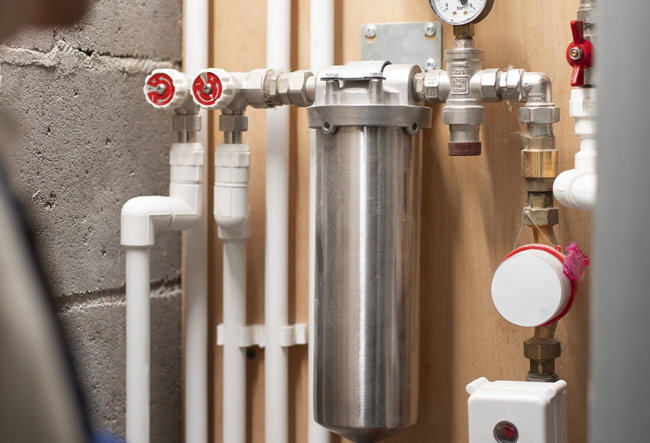
Tankless vs Tank Water Heaters: Which Makes Sense in Stafford?
Introduction
Choosing between a tank and a tankless water heater isn’t just about preference—it’s about finding the best fit for your home, budget, and lifestyle. In Stafford, where families rely heavily on consistent hot water for daily routines, this decision can make a big difference in comfort and efficiency.
Let’s compare the two systems in detail to help you understand which option makes the most sense for your Stafford home.
Understanding How Each Type Works
Before comparing the pros and cons, it’s important to know how both systems operate and what makes them different.
Traditional Tank Water Heaters
These units store and heat a fixed amount of water—usually between 30 to 80 gallons. When you turn on a faucet, hot water comes from the tank until it’s depleted. Once empty, the system must reheat the entire tank before more hot water is available.
Tankless Water Heaters
Tankless or “on-demand” systems heat water only when you need it. Instead of storing hot water, they use high-powered burners or electric coils to heat cold water as it flows through the unit, providing an endless supply with no waiting time.
Comparing Tank vs Tankless Water Heaters
Both systems can serve Stafford homeowners well, but they differ in key areas. The following points explain where each one shines and where it might fall short.
1. Energy Efficiency
Tankless water heaters are more efficient because they don’t waste energy maintaining a large reservoir of hot water. They heat water only when needed, lowering monthly energy bills.
Tank models, on the other hand, continuously keep water warm—even when not in use—so they consume more power overall.
2. Hot Water Availability
If you have a large family using multiple showers or appliances at once, a tank system might occasionally run out of hot water.
Tankless systems provide an endless supply, but their flow rate can be limited if several fixtures run simultaneously.
3. Installation and Cost
Tank water heaters are cheaper upfront and easier to install. Tankless systems cost more initially but offer long-term savings through energy efficiency and longevity.
4. Space Requirements
Tankless units are compact and wall-mounted, perfect for smaller homes or utility rooms. Traditional tanks need floor space and can be harder to fit in tight areas.
5. Lifespan and Maintenance
Tank heaters typically last 8–12 years, while tankless systems can last 20 years or more with regular maintenance. However, tankless systems require annual descaling to prevent mineral buildup, especially in Stafford’s hard water areas.
When a Tank Water Heater Makes Sense
Tank models are still a great choice for many Stafford households. Here’s when they might be the better fit:
You have a tight budget or need a quick replacement.
Your household uses moderate amounts of hot water throughout the day.
You prefer a simple, easy-to-maintain system.
You have space for a large unit and are fine with reheating periods.
When a Tankless Water Heater Is the Better Option
If you’re looking for efficiency and performance, tankless systems offer several clear advantages. You might prefer a tankless heater if:
You want continuous, on-demand hot water.
You value long-term savings over upfront cost
You want to free up floor space in your utility area.
You plan to stay in your home for many years and want a durable solution.
Considerations for Stafford Homeowners
In Stafford, choosing between the two types can also depend on local conditions:
Water Hardness: The area’s hard water may cause scale buildup, especially in tankless systems—so regular maintenance is key.
Home Size: Larger homes with multiple bathrooms may need either a high-capacity tank or multiple tankless units.
Energy Source: Whether your home runs on natural gas, propane, or electric power will influence efficiency and cost.
FAQs
Does a tankless water heater work well in colder months?
Yes, but incoming cold water may reduce the flow rate slightly. Choosing the right size unit ensures steady performance year-round.
Can I replace my tank heater with a tankless one easily?
It’s possible, but it often requires updates to gas lines or venting. A professional plumber can assess your setup for compatibility.
Do tankless heaters need a water softener in Stafford?
Because the area has hard water, a softener helps extend the system’s lifespan and prevent scale buildup.
How long does installation take?
A tank water heater typically takes a few hours to replace, while a tankless installation might take a full day due to new connections and venting adjustments.
Which option saves more money over time?
Tankless systems cost more upfront but can lower energy bills by 20–40% and last nearly twice as long, leading to better lifetime savings.
Conclusion
Both tank and tankless water heaters can serve Stafford homes effectively—it all depends on your household’s water use, energy goals, and budget. If you want affordable simplicity, a traditional tank is dependable. If you value long-term savings, compact design, and endless hot water, a tankless system may be worth the upgrade.
A professional plumber in Stafford can help evaluate your home’s needs, ensuring you choose the right system for lasting comfort and efficiency.